REVIEW: “You’re Not Dead Until You’re Forgotten – a Memoir”

Shivers (1975)
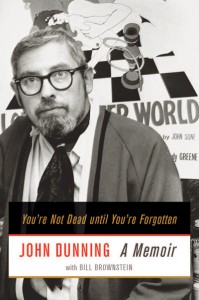 “You’re Not Dead Until You’re Forgotten – a Memoir”
“You’re Not Dead Until You’re Forgotten – a Memoir”
John Dunning with Bill Brownstein
McGill-Queens University Press
$29.95 Hardcover
BUY
**Book launch at the Toronto International Film Festival on Thursday September 11, 2014 6:30pm-8:30pm
at Ben McNally Books (366 Bay Street) – FREE Admission!**
John Dunning is a pivotal figure in Canadian film history, so it’s more than scandalous that he only began to get his proper due at the end of his life. The founder and creative force behind Montreal’s Cinepix Productions, Dunning and his purchasing cialis longtime cohort Andre Link brought the ideals of creative integrity and acerbic social commentary to the eternally maligned lower rungs of genre filmmaking.
For over two decades, their output – from the ‘maple syrup porn’ of Valerie and Loving & Laughing to the bluenose-baiting outrages of Shivers and Ilsa, She Wolf of the SS to the 80s horror touchstones Happy Birthday to Me and My Bloody Valentine – set a standard of invention and energy and, yes, artistic quality that was rarely matched in this country. Whether shaping his material directly as screenwriter or stewarding his charges (Ivan Reitman, David Cronenberg, Don Carmody, Larry Kent) as producer, Dunning was at the eye of the 70s/80s exploitation hurricane, and more than earned his sobriquet as “Canada’s Roger Corman”.
With the written history of Canadian cinema still struggling to reclaim itself from hermetic academia and incomprehensible flag-waving, we are more than privileged that prior to his 2011 demise lowest-price propecia costs us he put his name on an autobiographical manuscript. Edited and ornamented by Bill Brownstein, “You’re Not Dead Until You’re Forgotten” takes us on a near-complete tour through a life immersed, virtually from birth, in cinema. Structurally lumpy, and stronger on action and wit than characterization, it’s a page-turner and a revelation nonetheless.
The opening chapters recall his depression-era childhood and wartime adolescence as the son and professional heir of Verdun movie house pioneer “Mickey” Dunning. Dizzyingly compact, humane yet unrelentingly brutal, teeming with anecdote after uproarious anecdote, this sequence is a masterfully entertaining social history of early Canadian moviegoing. Dunning squanders his teen years in the service of the family enterprise, rescuing drunks from toilet drownings, ferreting indigent candy thieves out of the floorboards, and praying that the local steel mill drunks won’t rip the seats out when the distributors saddle him with the latest ‘women’s picture’. Meanwhile the theatre (and Dunning himself) are besieged from the canada cialis outside by the church, the morality squad, the mafia, the cops. After three years of hellishness, it’s small wonder this scrawny, crosseyed film geek needs psychotherapy – except then his therapist sells Dunning his shares in a production partnership with a psychotic named Fernand Seguin, whose own apparent nervous breakdown precipitates the founding of Cinepix itself.
After Link comes on board in the early 60s, the narrative levels out abruptly, and tales of Dunning risking life and limb are more or cialis levitra viagra compare less subsumed by a procession of episodes from the trenches. At first they work the only market available to them, as importers; they bring Quebec audiences everything from Luis Bunuel to the blackface jungle epic Lana, Queen of the Amazons. This sequence returns repeatedly and explicitly to Dunning’s view of this stuff as a conscious challenge to the puritanism of Duplessis-era Quebec, a complement to Jean Lesage’s ‘Quiet Revolution’, and while it may take some acclimatization to see such fare as a force for liberation, for the most part the argument is heartfelt and convincing.
The clincher in the social argument comes when Cinepix grows weary of managing the schlock of others and determines that the time has come to grow their own:
“We had been buying hard-edged sex films from Germany for the last few years. Films featuring drug and pimps on the edge. We were doing decently with these movies, but it dawned on us that no one ever seemed to make a nice film about a hooker. A woman who enjoys what she does, who is sensitive about helping her clients. A woman proud about her profession, in a romance movie that would end happily.”
And so along comes 1969’s Valerie – a softcore film so dear to Dunning’s heart that the protagonist is named after his daughter, and a landmark in the emergence of feature film culture in Quebec. Dozens of productions followed, at an intense clip that was to continue for two decades, with Dunning managing production and Link taking care of the distribution end. The book dedicates a page or two to each, and these are varied and entertaining and frequently laugh-out-loud funny.
Eventually they get tired of dealing with the kind of crooked distributors that handle their brand of fare, but as they graduate to major studio deals in the 80s they find out that these guys aren’t much more honest or principled. The key to the book’s perspective is Dunning’s disparagement of the ‘tax shelter’ wave in the late 70s, which he doesn’t deny exploiting for his own ends: “We called it the invasion of the carpetbaggers…Suddenly it wasn’t the film that was important, it was the deal…” To the ‘enlightened’ viewer there might be little difference in redeeming social value between My Bloody Valentine and, say, City On Fire; but Dunning saw himself as apart from such phenomena. He was dealing in art, on whatever terms the market could support.
By the late 80s the market was beginning to squeeze out this breed of independent idealist, and the corporate machinations that turned Cinepix into CFP and Dunning from creator to executive are both sad and severely truncated. No doubt Dunning found less fun and less adventure in these times, and thus his manuscript abruptly ends, leaving Brownstein to fill in the gaps with a brief coda and a series of ‘testimonials’ which spend too much time raking over the CFP years in tedious and redundant detail.
Of course, dying with your manuscript unfinished is a hell of a way to treat your editor, and Brownstein does his best here. But as one flips through the final third of the book, the attempt at resolution feels partial and failed. Not that unity was in the cards in the first place given the episodic nature of the original manuscript. But I wish a way had been found to integrate the other perspectives into the narrative, creating a true oral history of an era that needs one badly. This would have also allowed mainstays like Link and Carmody to emerge as characters in a way that they never do in Dunning’s text, and to smooth over some contradictions (were or were not Cinepix ‘blackballed’ from state funding after Shivers? Dunning and Cronenberg disagree).
There are frustrations in the body as well – Glenn Ford is “ornery” and then there’s that “very temperamental SOB” Jacques Tati; so why not identify the litigious “leading man” of The Surrogate by name, when anyone can easily look him up on imdb? (Litigiousness, one supposes.) This diplomatic hedging reaches its absurd conclusion when Dunning can’t even bring himself to refer to the Christina Applegate vehicle Vibrations by name! And while it was a sweet idea to augment the filmography with a litany of Dunning’s “firsts”, the research on these is appallingly sloppy – for example, it lists Larry Kent’s Keep It In the Family as his first Quebec film when in fact it was his fourth!
Such shortcomings make “You’re Not Dead Until Your Forgotten” into a less compelling pure reading experience than it could have been, which is truly a shame; this rendition is unlikely to touch the popular imagination, limiting its likely audience. But if you’re a fan, or think you could be, don’t hesitate to pounce on this product while it’s on the shelf. Imperfection never bothered Cinepix fans before, for the excellent reason that the good stuff is worth it. And there’s a lot of really, really good stuff in this book.

 September 10, 2014
September 10, 2014 

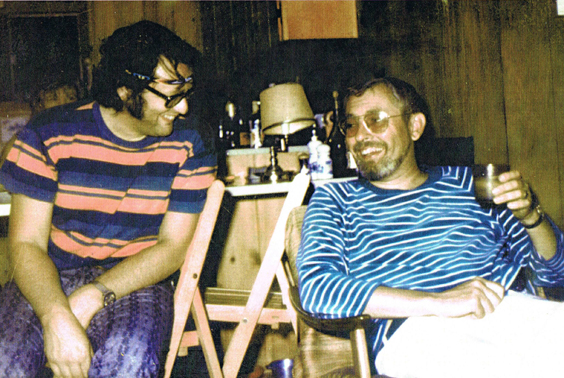
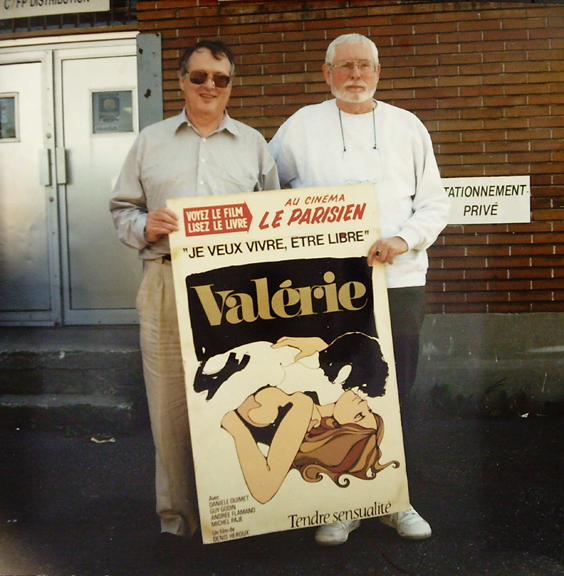
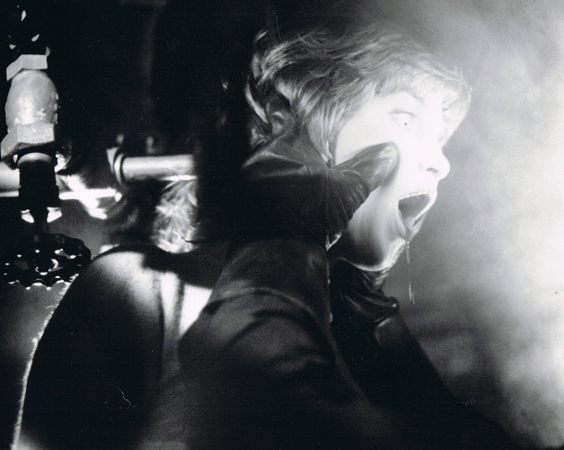
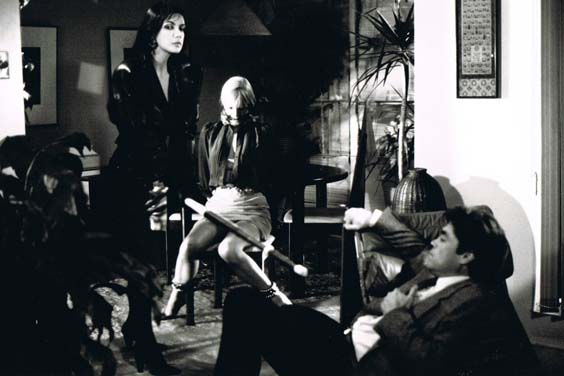
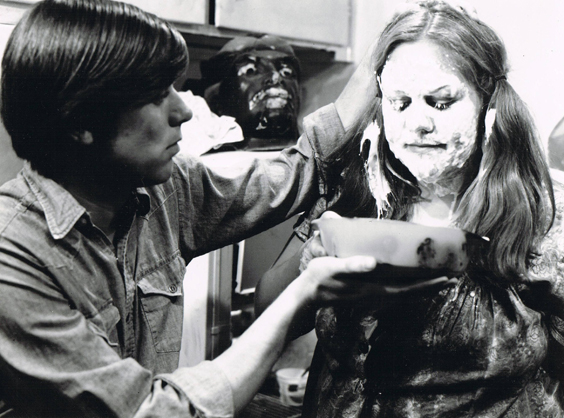







Comments
Johnathan. Spot on review and critique. Thank you. I hope there is appetite and interest in a You’re Not Dead 2.0, with the Andre Link side of the story and some historical context.
10 yearss agoTrying to contact Greg Dunning. Feisty great grandma Leah was sister of my feisty great grandma left behind in England. Would like to share information
9 yearss agoHi Jacqueline – contact me at bigsmashproductions@gmail.com and I’ll connect you with Greg.
9 yearss ago